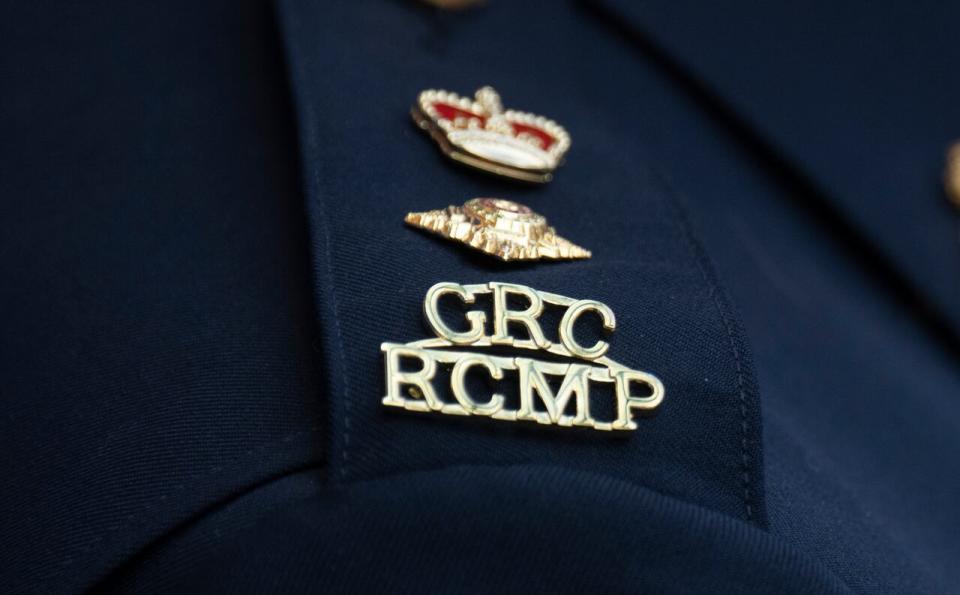B.C. coroner's inquest recommends changes to strip search policy
A B.C. Coroners Service inquest is recommending police change how they conduct strip searches after the death of a 23-year-old woman.
Jaime Diane Hope died of a methamphetamine overdose in a police holding cell on April 14, 2019, after being arrested by RCMP in Dawson Creek, about 1,190 kilometres northeast of Vancouver.
The inquest into Hope's death ended Friday at the Dawson Creek Law Courts. Coroner's inquests are mandatory in B.C. when a person dies while detained or in police custody.
In a verdict issued on Friday, the jury recommended the B.C. RCMP and its Dawson Creek detachment change their strip search policies. The RCMP did not immediately respond to a request for comment.
The inquest found Hope's overdose death was an accident, with a previous investigation by B.C.'s police watchdog having found that she took a significant dose of meth — hours after being arrested and strip searched by police.
"The jury heard there is a lack of formal ... training provided to members conducting strip searches due to the infrequency of these types of searches," a jury spokesperson told the inquest on Friday.
No body cavity search
B.C.'s police oversight agency, the Independent Investigations Office (IIO), issued a December 2019 decision detailing the circumstances leading up to Hope's death.
According to the IIO, Hope was in a vehicle being driven by another person when they were stopped by Dawson Creek RCMP.
Officers found drugs and drug paraphernalia in the vehicle, according to the IIO report, and both people were arrested and taken to holding cells at the Dawson Creek RCMP detachment.

Given that there was suspicion of illicit drug possession officers decided to perform a strip search, the IIO report said. An inexperienced female police officer searched Hope, while two other more experienced officers gave her instructions — with one of those people, a male officer, giving instructions despite not seeing the search itself.
The report said police did not perform a body cavity search on Hope, as there were no reasonable grounds to believe drugs were being hidden inside her body. No drugs were found in the strip search, and Hope was left alone in the detachment's holding cell.
While Hope appeared alert and co-operative, and was periodically checked on by RCMP officers, the IIO said cell block video captured her becoming restless around three hours after she was searched.
Then the video showed her appearing to push her hand down the front of her jeans, before putting her hand to her mouth, the report stated.
Hope then became unresponsive when an officer checked in on her, and later died in a Prince George hospital. A small plastic bag and an unknown substance was found on the floor of the holding cell, with the substance later confirmed as being methamphetamine.
No charges were recommended against the officers in the case, with the IIO ruling that Hope's death was not the result of police action or inaction.
Jury makes 3 recommendations
The jury's recommendations would require police to review strip search procedures before conducting one.
It also recommended B.C. RCMP create a visual guide outlining how to position a detained person and how to handle their clothes and mobile phones.
"Providing a visual aid will help ensure strip searches are conducted to a consistent standard, instead of relying on verbal instructions from another [officer] who cannot see the search as it's being conducted," an inquest jury member said Friday.
The third recommendation was for Dawson Creek RCMP to ensure guards know they can request the help of other guards while a person is being held.

According to the jury member, they heard from police officers who said they had to attend to other duties — which meant they could not continuously monitor the condition of detainees in cells.
They said RCMP officers should be made aware that they can call in extra guards, as reasonably required, to monitor the condition of detainees.
Recommendations from coroner's inquests are not legally binding. They serve to determine the facts of a death and make recommendations to prevent deaths in similar circumstances.

